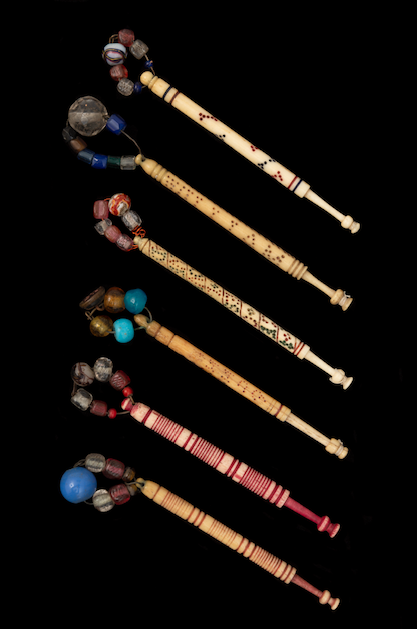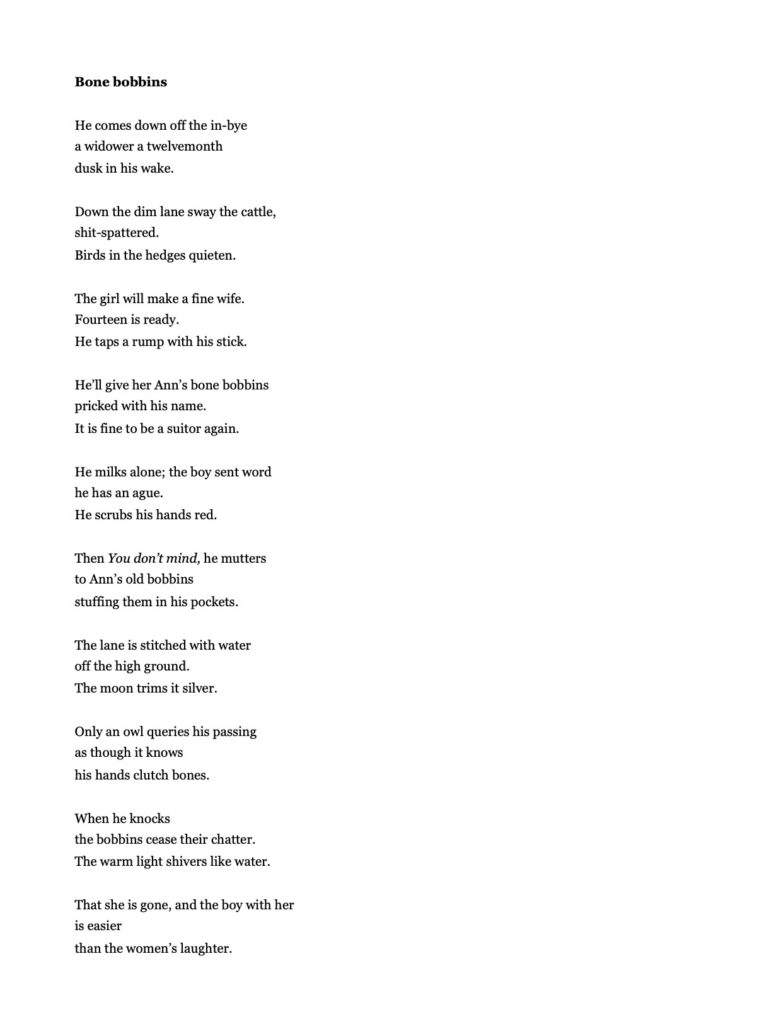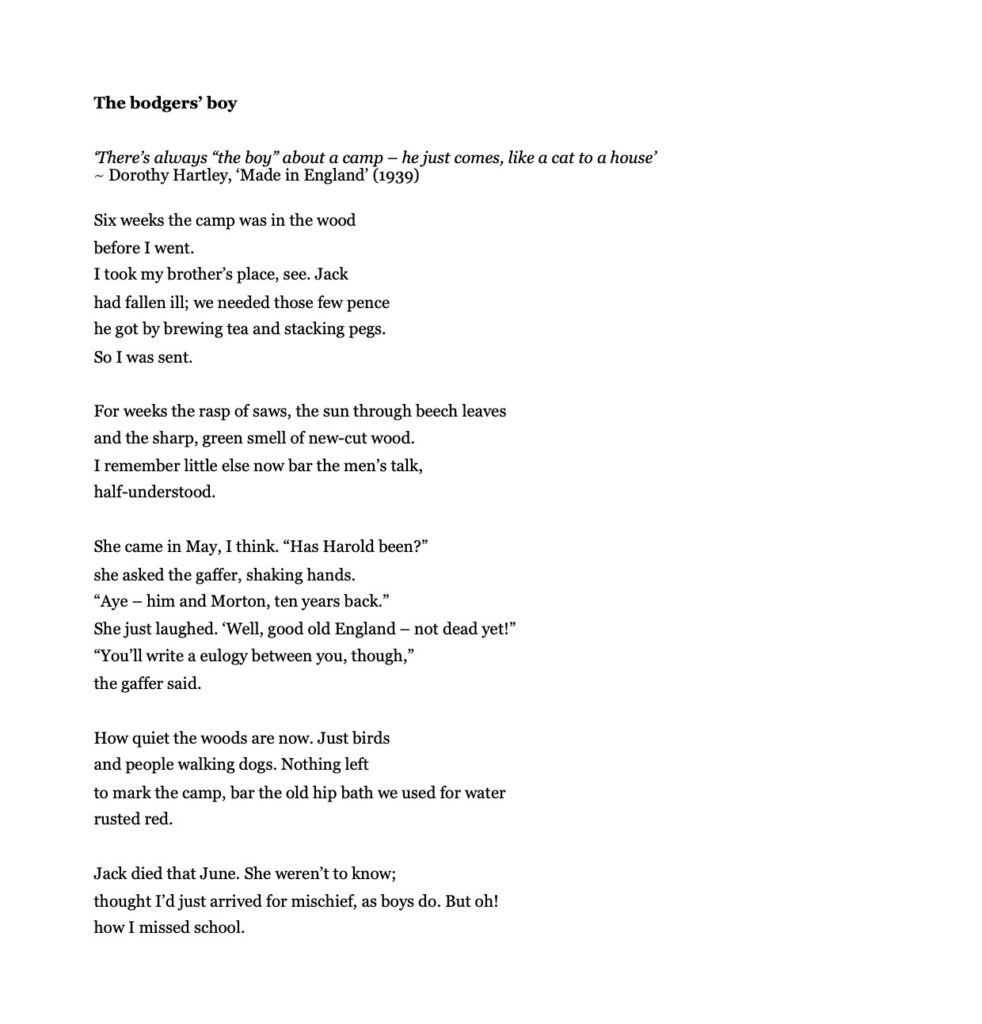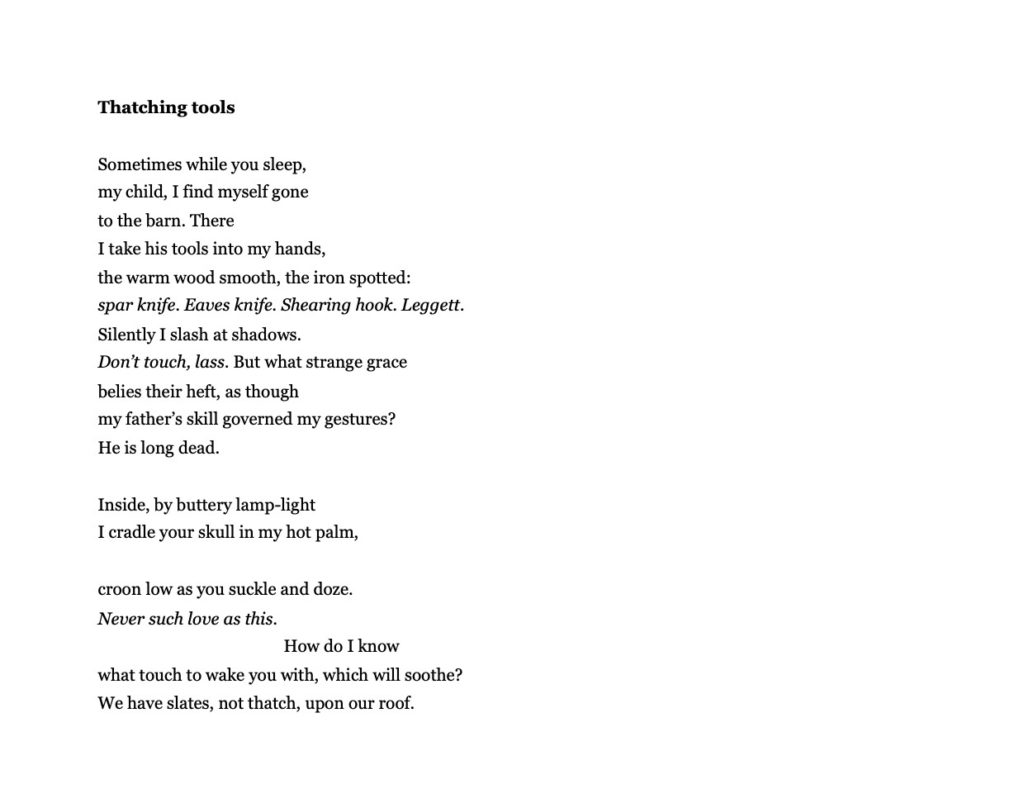Dr Ollie Douglas from the Museum of English Rural Life introduces their ‘Museum of the Intangible’ project, in which artists and writers were commissioned to consider elusive and immaterial aspects of the rural past absent from the museum’s collections. Plus, we share Melissa Harrison‘s response to the brief.
Museums are full of material things. As Curator of the Museum of English Rural Life I’m responsible for spaces that often seem fit to burst from the sheer volume of stuff that they house. But as well as tangible nuggets of the past, their shelves, boxes, vitrines, and galleries are also full of innumerable stories. Some are tales of things that actually happened (or continue to happen), and others emerge from the imaginations of our visitors. Of course, numerous factual and fictional responses already exist. But many more lie dormant, waiting to be researched and written, or imagined and inscribed.
The notion of non-physical vestiges of the past is not new and, cumbersome as it sounds, the clunky idea of ‘intangible cultural heritage’ has been a beacon for bringing together those who safeguard traditional skills, performances, narratives and beliefs by continuing to practice them. We have thriving heritage craftspeople and enthusiastic folk performers in the UK but our museums and heritage sites often struggle somewhat to embrace the ‘intangible’, perhaps seeing it as less significant than material edifices, treasure houses, or landscapes designed for the oligarchs of another century.
Here at The MERL, perhaps because the things we look after are more vernacular, we have other priorities. We sought funding from Arts Council England to commission contemporary artists, writers, and others to respond to the idea of the ‘Museum of the Intangible’. Being committed curators we couldn’t ditch our stuff completely, so we began by inviting people to view and handle artefacts and archives. We asked them to think what elusive and immaterial aspects of the rural past may be missing from our collections. Where do the gaps lie in terms of the most fleeting traces of life in the countryside? How might narrative forms play a part in reconstructing the fragile fragments of past activity?
The approaches of different artists were richly varied, ranging from an impossible ‘museum of contemporary farming’ realised through Twitter, to hand-crafting a pair of clogs for a dancer to take out into the world so they can accrue a new biography through music and choreography. These responses engaged a broader public through our events programmes: in exhibitions, workshops, performances, and online engagement.
But two of our most brilliant commissions have remained unpublished and unenjoyed. They are the following responses in prose and poetry by our literary collaborators, Alexandra Harris and Melissa Harrison. Their words have remained hidden: now you can bring their intangible ideas to life by reading their responses on Caught by the River.
Dr Ollie Douglas, The Museum of English Rural Life, Reading, January 2019

Here follow three poems written by Melissa Harrison for the Museum of the Intangible:

*

*

*
Visit the Museum of English Rural Life website here, and follow them on Twitter here. Find out more about the Museum of the Intangible here.
We’ll be publishing Alexandra Harris’s contribution to the project tomorrow.